| USAID headquarters at 1300 Pennsylvania Ave., NW, Washington, D.C. |
Since 2009, USAID and State Department funds for democracy programs in Cuba have ranged from $15 million to $20 million per year. In October 2010, I asked USAID:
To find the answer, I dug up the most recent tax records for USAID's current seven partners. Five are based in or around Washington, D.C. Two are in South Florida. All are in various stages of three-year grants ending in 2014 or 2015.
I quickly found that it's hard to estimate how much support reaches Cuba because USAID grantees:
International Relief and Development, 1621 N. Kent Street, 4th floor, Arlington, Va.
USAID Cuba grant: $3.5 million for September 2011 to September 2014
Description: "Actively assist vulnerable population in over 40 countries with social, political/technical challenges."
President and CEO: Arthur B. Keys Jr.
Notable expenses: IRD doesn't provide a breakdown of its Cuba expenses. In fact, I couldn't find Cuba in the tax record, although it may be hiding in this document.
The IRD reported receiving $44,062,038 for "Democracy, Governance and Community Development." Perhaps its Cuba program is buried in there somewhere. To be fair, large NGOs can't report the same level of detail in spending reports as smaller organizations because their operations are so vast. (See IRD's Form 990 for 2011).
Salaries and other compensation: $82,075,235.
Total expenses in 2011: The IRD reported expenses of $461,072,641. Of that, it awarded $161,397,286 in subcontracts, making it difficult to follow the money. In 2011, taxpayers supplied 99.99 percent of the IRD's budget.
International Republican Institute, 1225 Eye Street, NW, Suite 700, Washington, D.C.
USAID Cuba grant: $3 million for September 2012 to September 2015
Description: "Advance freedom and democracy worldwide developing political parties, civic institutions, open elections, good governance and the rule of law."
President: Lorne W. Craner.
Notable expenses: IRI reported spending $1,172,028 for "democracy assistance" and $256,260 for "grant-making" in Central America and the Caribbean. That is likely where its Cuba program resides. Records show the $256,260 was distributed outside the U.S. (See IRI's Form 990 for 2011).
Salaries and other compensation: $17,275,587.
National Democratic Institute, 455 Massachusetts Ave, NW, 8th Floor Washington, D.C.
USAID Cuba grant: $2.3 million for September 2011 to September 2014
Description: "A non-profit, nonpartisan organization working to support and strengthen democratic institutions worldwide through citizen participation, openness and accountability in government."
President: Kenneth D. Wollack.
Notable expenses: NDI spending in Central America and the Caribbean included:
Salaries and other compensation: $62,441,837.
Wollack's reported salary and other compensation was $288,303.
Total expenses in 2011: NDI reported expenses of $148,838,304. It received $147,371,548 in government grants. In 2010, taxpayers supplied 99.97 percent of the organization's budget.
Foundation for Human Rights, 1312 S.W. 27th Ave., Miami, FL.
Description: "Established to empower Cuban Civil Society in its struggle to build a free and democratic Cuba." Associated with the Cuban American National Foundation, or CANF.
President: José Antonio Costa
USAID Cuba grant: $3.4 million for September 2011 to September 2014
Notable expenses:
Salaries and other compensation: $156,899
This included:
Assorted other expenses: $98,827.
This included:
Total expenses in 2011: $612,896.
Kudos for community involvement:
The foundation reports that fundraising events brought in $232,467. That shows that the organization doesn't entirely depend on the government and has community support.
Grupo de Apoyo a la Democracia, 1000 Ponce De Leon Blvd., Coral Gables, FL.
Description: "Mission is to provide humanitarian aid to the families of political prisoners and civil societies in their efforts to enhance Cuba's transition to democracy."
Executive Director: Frank Hernandez-Trujillo
USAID Cuba grant: $3 million for September 2012 to September 2015
Notable expenses:
The organization's president, Frank Hernandez-Trujillo, earned a salary of $36,000.
Assorted other expenses: $79,464.
This included:
Total expenses in 2011: $552,116.
New America Foundation, 1899 L Street, N.W., Suite 400, Washington, D.C.
USAID Cuba grant: $4.3 million for September 2012 to September 2015
Description: "To bring exceptionally promising new voices and new ideas to the fore of our nation's public discourse through fellowships and issue-specific programs and sponsoring a wide range of research, writing, conferences and events on the most important issues of our time."
President: Steve Coll
Notable expenses: The foundation spent $3,507,513 on technology policy programs. This includes money for its Open Technology Institute, which is developing tools to allow democracy activists in Cuba and other nations to build independent wireless networks. (See "Cuba likely target for mesh network").
Salaries and other compensation: $9,405,397.
Pan-American Development Foundation, 1889 F Street N.W., 2nd Floor Washington D.C.
USAID Cuba grant: $3.9 million for September 2011 to September 2014
Description: "To increase opportunities for the disadvantaged in Latin America and the Caribbean."
President: John Sanbrailo
Notable expenses: PADF spending in Central America and the Caribbean included:
Salaries and other compensation: $9,027,653.
Note: This article was shared with the Center for Democracy in the Americas as part of a six-month collaborative project with non-profit group. See more about our collaboration here >>
How much of the money from, say, $15 million reaches the hands of dissidents, pro-democracy activists and other aid targets in Cuba?USAID replied:
The vast majority of this money is intended for individuals on the ground in Cuba. Our objective is to maximize the amount of support that benefits Cubans on the island."Vast majority" is hard to define. I'd like to think that USAID meant 70 or 80 percent, but let's say it's 51 percent. Does that much support reach Cuba?
To find the answer, I dug up the most recent tax records for USAID's current seven partners. Five are based in or around Washington, D.C. Two are in South Florida. All are in various stages of three-year grants ending in 2014 or 2015.
I quickly found that it's hard to estimate how much support reaches Cuba because USAID grantees:
- Report too few details to fully understand how they spend their money.
- Have different ways of reporting and describing revenues and expenses.
- Sometimes intermingle private and government money.
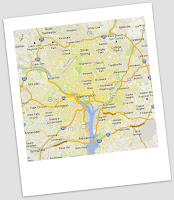 |
| Beltway riches |
- The Florida NGOs run by Cuban exiles disclosed more detail in their spending reports than their Washington, D.C., counterparts.
- The Florida organizations also spent less money. One Cuban exile who manages a USAID democracy program earned less than $40,000 per year. Such contractors likely funnel a larger share of their support to Cuba than their Beltway cousins.
- Many questions remain about democracy program spending. Beltway NGOs are particularly stingy with details, which is ironic since some spend tax dollars to promote openness and accountability outside the United States.
- Some NGO chiefs earn huge salaries. The president of International Relief and Development makes more than Barack Obama. His wife also works at IRD. The couple's total take in 2011: $1,040,171.
- Taxpayers foot the bill for most of these salaries, yet NGO bosses don't face the same scrutiny as public officials.
International Relief and Development, 1621 N. Kent Street, 4th floor, Arlington, Va.
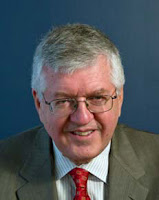 |
| Arthur B. Keys Jr. |
Description: "Actively assist vulnerable population in over 40 countries with social, political/technical challenges."
President and CEO: Arthur B. Keys Jr.
Notable expenses: IRD doesn't provide a breakdown of its Cuba expenses. In fact, I couldn't find Cuba in the tax record, although it may be hiding in this document.
The IRD reported receiving $44,062,038 for "Democracy, Governance and Community Development." Perhaps its Cuba program is buried in there somewhere. To be fair, large NGOs can't report the same level of detail in spending reports as smaller organizations because their operations are so vast. (See IRD's Form 990 for 2011).
Salaries and other compensation: $82,075,235.
- Keys' reported compensation from the IRD and related organizations was $676,916.
- Keys' wife is Jasna Basarick-Keys, the company's program operations chief. Her reported compensation from IRD and related organizations was $363,255.
- Basarick-Keys has a family relationship with Mladen Basarick, the IRD's director of global technology, who received a salary of $193,121.
- IRD also reported that it paid Keys family member Natasa Rukaa $88,009 in salary and benefits.
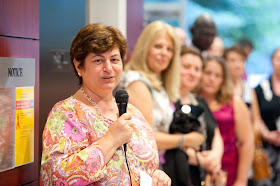 |
| Jasna Basarick-Keys. Photo: IRD |
Total expenses in 2011: The IRD reported expenses of $461,072,641. Of that, it awarded $161,397,286 in subcontracts, making it difficult to follow the money. In 2011, taxpayers supplied 99.99 percent of the IRD's budget.
International Republican Institute, 1225 Eye Street, NW, Suite 700, Washington, D.C.
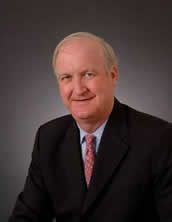 |
| Lorne W. Craner |
Description: "Advance freedom and democracy worldwide developing political parties, civic institutions, open elections, good governance and the rule of law."
President: Lorne W. Craner.
Notable expenses: IRI reported spending $1,172,028 for "democracy assistance" and $256,260 for "grant-making" in Central America and the Caribbean. That is likely where its Cuba program resides. Records show the $256,260 was distributed outside the U.S. (See IRI's Form 990 for 2011).
Salaries and other compensation: $17,275,587.
- Craner's reported salary and other compensation was $263,672.
National Democratic Institute, 455 Massachusetts Ave, NW, 8th Floor Washington, D.C.
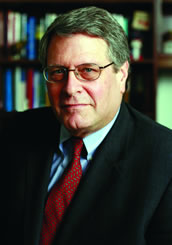 |
| Kenneth D. Wollack |
Description: "A non-profit, nonpartisan organization working to support and strengthen democratic institutions worldwide through citizen participation, openness and accountability in government."
President: Kenneth D. Wollack.
Notable expenses: NDI spending in Central America and the Caribbean included:
- $4,999,051 for "democracy support"
- $1,502,585 for grants
- $253,538 for "democratic leadership development"
- $39,801 for "fostering young political leaders"
- $15,419 for "fostering the development of young democratic leaders"
- $11,056 for "fostering communication between citizens and political leaders"
- $12,335 for "development of political debates"
Salaries and other compensation: $62,441,837.
Wollack's reported salary and other compensation was $288,303.
Total expenses in 2011: NDI reported expenses of $148,838,304. It received $147,371,548 in government grants. In 2010, taxpayers supplied 99.97 percent of the organization's budget.
Foundation for Human Rights, 1312 S.W. 27th Ave., Miami, FL.
Description: "Established to empower Cuban Civil Society in its struggle to build a free and democratic Cuba." Associated with the Cuban American National Foundation, or CANF.
President: José Antonio Costa
USAID Cuba grant: $3.4 million for September 2011 to September 2014
Notable expenses:
- "Preparation of various publications both in video and in written form for training and awareness purposes to empower Cuban civil society": $231,767.
- "Technology equipment" for "Cuban civil society": $125,403.
Records do not describe the equipment. It is shown as $83,542 for "events & other" and $41,861 for "other projects."
The organization's website says the foundation supplies Cubans with "computers, DVD players (and instructional DVDs), cell phones, and other related communication equipment." (See FHR's Form 990 for 2011).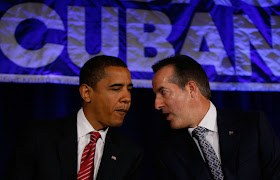 |
| Foundation board member Jorge Mas Santos with Barack Obama. Photo: Joe Raedle/Getty Images North America |
This included:
- Compensation of current officers, directors, trustees, key employees: $56,750.
- Other salaries and wages: $47,397.
- Other employee benefits: $14,423.
- Payroll taxes: $38,429.
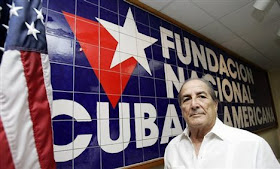 |
| Francisco "Pepe" Hernandez is a Foundation for Human Rights board member. |
This included:
- Accounting: $4,975.
- Fees for services, non-employees: $21,827.
- Advertising and promotion: $221.
- Office expenses: $16,552.
- Information technology: $14,853.
- Insurance: $6,595.
- Miscellaneous: $4,071.
- All other expenses: $7,061.
Total expenses in 2011: $612,896.
Kudos for community involvement:
The foundation reports that fundraising events brought in $232,467. That shows that the organization doesn't entirely depend on the government and has community support.
Grupo de Apoyo a la Democracia, 1000 Ponce De Leon Blvd., Coral Gables, FL.
 |
| Frank Hernandez-Trujillo |
Executive Director: Frank Hernandez-Trujillo
USAID Cuba grant: $3 million for September 2012 to September 2015
Notable expenses:
- "During 2011, GAD sent approximately 36,000 pounds of food and over-the-counter medication supplies to the families of political prisoners and civil societies in Cuba": $430,976. (see Form 990 for 2011).
The organization's president, Frank Hernandez-Trujillo, earned a salary of $36,000.
Assorted other expenses: $79,464.
This included:
- Accounting: $12,788.
- Other (fees for services, non-employees): $36,000.
- Office expenses: $1,142.
- Information technology: $2,422.
- Occupancy (office): $12,600.
- Depreciation: $692.
- Telephone: $11,439.
- Auto mileage: $1,100.
- Bank charges: $31.
- License and permits: $978.
- All other expenses: $272.
Total expenses in 2011: $552,116.
New America Foundation, 1899 L Street, N.W., Suite 400, Washington, D.C.
USAID Cuba grant: $4.3 million for September 2012 to September 2015
Description: "To bring exceptionally promising new voices and new ideas to the fore of our nation's public discourse through fellowships and issue-specific programs and sponsoring a wide range of research, writing, conferences and events on the most important issues of our time."
President: Steve Coll
Notable expenses: The foundation spent $3,507,513 on technology policy programs. This includes money for its Open Technology Institute, which is developing tools to allow democracy activists in Cuba and other nations to build independent wireless networks. (See "Cuba likely target for mesh network").
Salaries and other compensation: $9,405,397.
- Coll's reported salary and other compensation was $363,201. (See NAF's Form 990 for 2011).
Pan-American Development Foundation, 1889 F Street N.W., 2nd Floor Washington D.C.
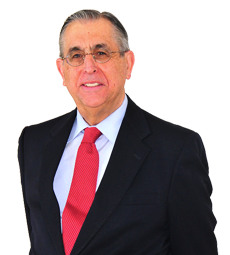 |
| John Sanbrailo |
Description: "To increase opportunities for the disadvantaged in Latin America and the Caribbean."
President: John Sanbrailo
Notable expenses: PADF spending in Central America and the Caribbean included:
- $1,297,039 for "strengthening communities and civil society"
- $702,599 in grants to foreign organizations and individuals.
Salaries and other compensation: $9,027,653.
- Sanbrailo's salary and other compensation was $222,059.
Note: This article was shared with the Center for Democracy in the Americas as part of a six-month collaborative project with non-profit group. See more about our collaboration here >>
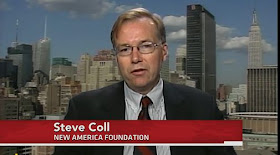
No hay comentarios:
Publicar un comentario